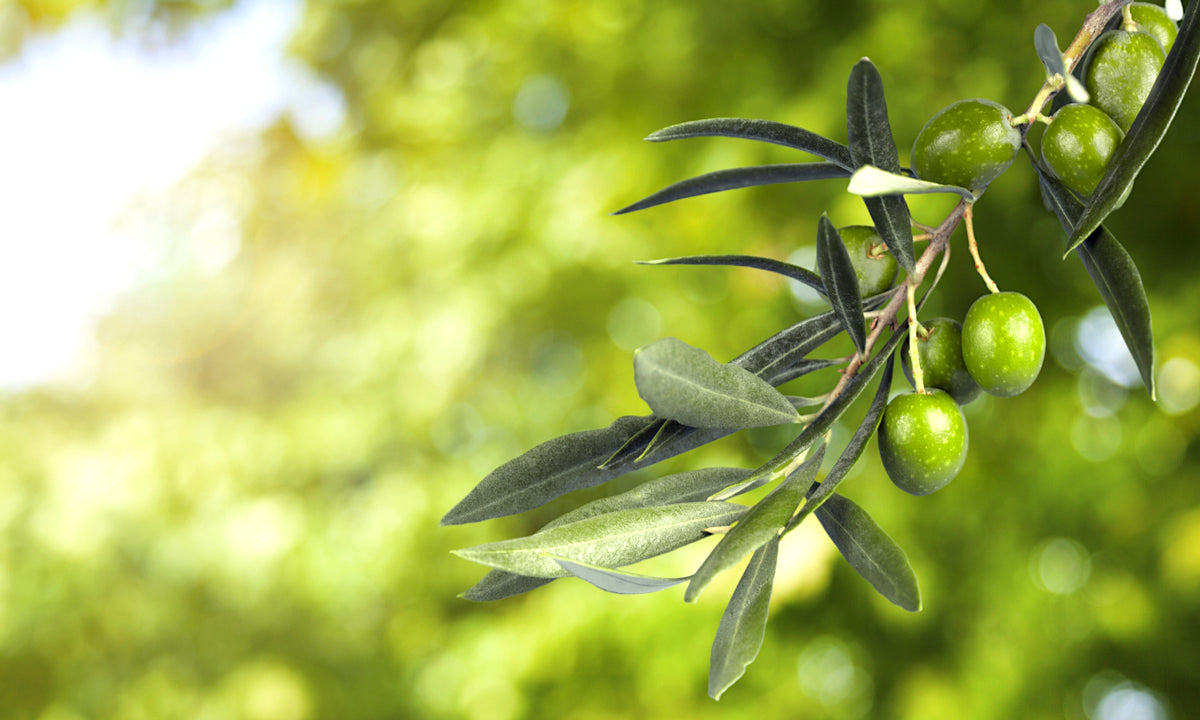Your Cart is Empty
FREE SHIPPING on US orders over $45. Save 25% With Code TAKE25 at checkout.
FREE SHIPPING on US orders over $45. Save 25% With Code TAKE25 at checkout.

This new miracle ingredient is getting a lot of buzz, but what about the actual squalane benefits for skin? Squalane is one of the latest "it" ingredients in anti-aging skincare, touted as nourishing, hydrating, and renewing. It also packs an antioxidant punch. Keep reading to learn why it deserves a spot on your skincare lineup.
Squalane is found in a variety of sources, including olives, amaranth, and non-botanical sources like shark livers. It is naturally found in our skin as well. It is odorless, colorless, and looks more like a gel than an oil.
Make no mistake, though - just because you can’t see it, smell it, or feel a greasy texture doesn’t mean squalane doesn’t pack a powerful moisturizing punch! Squalane is used in skin care products, cosmetics, bath oils, facial cleansers, moisturizers, and even more products promising “anti-aging” benefits.
Because it’s so light and leaves no oily film, squalane can be used as a hair conditioner, too. It softens, smoothes, and coats the hair cuticle, making hair softer, shinier, and healthier.
As mentioned, squalane is manufactured by our bodies, but in humans the levels start to decrease as we grow older -- as early as in our 20’s. Squalane is now mostly plant-based. Most cosmetics companies have stopped using using shark liver oil in recent years for ethical reasons.
If you check the labels on products with squalane, you might find ingredients such as:
Before we get to the benefits of squalane for skin, let’s back up and answer this commonly asked question first: are squalane and squalene the same thing? That answer is a definite NO.
Squalane has undergone a hydrogenation process, turning it into a saturated fat. It’s much more stable and has a longer shelf life than squalene, an unsaturated fat. The result of the processing is a lighter texture that can be used on any skin type, including oily and acne-prone ones. Squalene, on the other hand, would be best used on very dry, mature skin.
Both squalane and squalene are terrific moisturizers and both come from the same sources. They’re both manufactured in our bodies and they both also can come from the livers of sharks, as well as olives, palm trees, wheat germ, and rice bran. The similarity ends there, however, because squalane has been processed differently, making it non-greasy and more skin-friendly.
There are many squalane benefits for skin and one of them is that it is completely compatible with skin as it is already an existing component. The human body manufactures squalane naturally, with squalane making up 13 percent of our sebum.
Sebum is something we only hear about when we have too much and it causes our skin to be oily and acne-prone. But it can also be considered a “good guy,” because our skin needs sebum to function properly. Sebum is what keeps our skin moist and protected from our environment.
There have been several studies in recent years showing that squalane doesn’t just moisturize, but may also be an effective anti-aging ingredient, helping to lessen the appearance of fine lines and wrinkles. That’s because it absorbs so deeply. Dry skin tends to magnify wrinkles; hydrated skin does not.
It might also combat aging by protecting the skin from UV rays and free radicals, which destroy skin cells and damage the skin’s natural collagen, cause uneven skin tone and create age spots.
That little “e” makes a big difference! Squalane will:
Squalane is so light that you can use it under creams or makeup, or layer it over a toner or serum as a single-ingredient moisturizer. It can be a little tricky to use an oil, but using a small amount of squalane on a cotton pad should prevent overapplication (just a few tiny drops will go a long way).
Since the slippery texture acts as a surface barrier, squalane can prevent other important ingredients from getting absorbed into skin. That means you may want to use it only as a final step in your nightly skincare routine.
It is also a useful ingredient to look for in moisturizers, eye creams, and other anti-aging products, for both the face and body.
Skin care and medical experts say that squalane has good effects on uneven skin tone, scars, and age spots. This antioxidant-rich oil is believed to fight free radicals in the skin that are caused by the sun’s UV rays.
Squalane may fade these marks over time because of the oil’s ability to absorb deeply into skin and repair it. There are so many squalane benefits for skin - it’s so much more than a simple moisturizer!